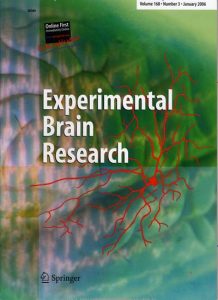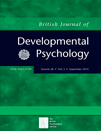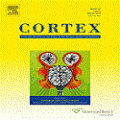ترجمه فارسی مقاله:
تاثیر آموزش موسیقی زودهنگام بر عملکرد حرکتی بزرگسالان:شواهدی در مورد یک دوره حساس در یادگیری حرکتی
≡ مشخصات و منبع مقالات
≡ مشخصات و منبع مقالات

- منبع مقاله: سایت springer
- نشریه: Experimental Brain Research Psychology
- سال انتشار:۲۰۰۷
- موضوع: تربیت بدنی رفتارحرکتی
- تعدادصفحات انگلیسی:۹
- تعداد صفحات فارسی ترجمه شده: ۱۵
- فایل بصورت: Word قابل ویرایش
- قیمت بر حسب تومان : ۲۰,۰۰۰ هزارتومان
عنوان انگلیسی مقاله:
The effect of early musical training on adult motor performance:evidence for a sensitive period in motor learning
نویسندگان:
Donald Watanabe
Tal Savion-Lemieux – Virginia B. Penhune
چکیده انگلیسی مقاله:
Abstract
Developmental changes in the human brain coincide with and underlie changes in a wide range of motor and cognitive abilities. Neuroimaging studies have shown that musical training can result in structural and functional plasticity in the brains of musicians, and that this plasticity is greater for those who begin training early in life.
However, previous studies have not controlled for differences between early-trained (ET) and late-trained (LT) musicians in the total number of years of musical training and experience. In the present experiment, we tested musicians who began training before and after the age of 7 on learning of a timed motor sequence task. The groups were matched for years of musical experience, years of formal training and hours of current practice.
Results showed that ET musicians performed better than LT musicians, and that this performance advantage persisted after 5 days of practice. Performance differences were greatest for a measure of response synchronization, suggesting that early training has its greatest effect on neural systems involved in sensorimotor integration and timing.
These Findings support the idea that there may be a sensitive period in childhood where enriched motor training through musical practice results in longlisting benefits for performance later in life. These results are also consistent with the results of studies showing structural changes in motor-related regions of the brain in musicians that are specifically related to training early in life.
Methods
Participants
Participants were 30 young, healthy, right-handed practicing musicians between 17.8 and 36.8 years of age (17 women and 13 men, M = 24.9 years, SD = 5.3) and 10 non-musicians between 19.3 and 33.4 years of age (5 men and 5 women, M = 26.2 years, SD = 5.1) tested for a previous study using the same protocol (Savion-Lemieux and Penhune 2005). All participants were recruited from the undergraduate student population of Concordia University. Musicians were recruited from the Department of Music and from the Montreal area population. All participants were right-handed as
assessed by a handedness questionnaire adapted from Crovitz and Zener (1962). None of the participants had a history of neurological disorders. For the purposes of this study, a practicing musician was operationally defined as an individual who was currently practicing music and had at least four years of musical experience (range 7.5–۲۶٫۰ years). Musical experience was defined as the ability to play a musical instrument or sing, acquired through formal and practical training.
The participants were predominantly piano and string players. Two of the musicians identified voice as their current primary musical focus, but both had extensive instrumental training and experience (15 years of guitar; 12 years of piano) and both currently practiced these instruments, although not to the same degree as voice. Similarly, a number of other musicians in the sample had played several instruments over their careers and some continued to play a secondary instrument throughout their careers.
Musicians were divided into two groups: early trained musicians (ET; n = 15, 9 women and 6 men) who began training before the age of 7 and late-trained musicians (LT; n = 14, 8 women and 6 men) who began training after the age of 7. The age at which musicians began training, the number of years of experience, the amount of formal training and the number of hours per week currently practiced were assessed using a modified version of the Global Index of Musical Training and Experience (Penhune et al. 1999; see supplementary material).
Musicians in the two groups were individually matched for years of musical experience and formal training. Years of experience were defined as the total number of years of musical training. Years of formal training were defined as the total number of years spent in formal training (e.g., lessons). Both groups of musicians were compared to a group of nonmusician controls who had been tested for a previous experiment using the same protocol (Savion-Lemieux and Penhune 2005). These individuals were selected to
have less than 3 years of musical training or experience and were not currently practicing music. All subjects were right-handed with no history of neurological or psychiatric disorder. The experimental protocol was approved by the Concordia University Human Research Ethics Committee, Montreal, Canada. Participants gave informed consent and were compensated for their time.
≡واژهای کلیدی مقاله
≡واژهای کلیدی مقاله
keywords: musical training,motor performance,sensitive period,motor learning
ترجمه فارسی چکیده مقاله:
چکیده:
تغییرات رشدی در مغز انسان منطبق و در همپوشانی با تغییرات در طیف گسترده ای از توانایی های شناختی و حرکتی است . بررسی های تصویر نگاری سیستم عصبی نشان داده است که آموزش موسیقی می تواند در شکل پذیری(پلاستی سیتی ) ساختاری و عملکردی در مغز نوازندگان شود، و این شکل پذیری(پلاستی سیتی) درافرادی که در اوایل زندگی شروع به آموزش می بینند بیشتر است.
با این حال، تحقیق های قبلی تفاوت بین نوازندگان با تعلیم زودهنگام (ET) و نوازندگان با تعلیم دیر هنگام (LT) در تعداد کل سالهای تجربه و آموزش موسیقی کنترل و بررسی نکرده اند. درآزمایش حاضر ، ما نوازندگانی که قبل و بعد از سن ۷ سالگی شروع به تعلیم در یادگیری یک تکلیف توالی حرکتی زمانی کرده اند ، را مورد آزمایش قراردادیم. گروه ها به مدت سالهای تجربه موسیقی، سالهای آموزش رسمی و ساعات تمرین فعلی همسان سازی شدند.
نتایج نشان داد که نوازندگان با تعلیم زود هنگام ( ET) از نوازندگان با تعلیم دیر هنگام ( LT) عملکردی بهتری داشتند واینکه این برتری عملکرد پس از ۵ روز از تمرین همچنان ادامه داشت. تفاوت ها ی عملکردی در مورد میزان همزمانی پاسخ بیشتربود که نشان می دهد آموزش زود هنگام تاثیری بیشتری برروی سیستم عصبی در بخش یکپارچی حسی حرکتی و زمان ، دارد.
این یافته ها ازاین ایده که ممکن است یک دوره حساس در دوران کودکی وجود داشته باشد که در آن با غنی تر کردن آموزش حرکتی از طریق تمرین موسیقی که منجر به مزایای بی شمار عملکرد بعدی در زندگی می شود را تقویت و حمایت می کند. این نتایج ،همچنین با نتایج مطالعاتی که نشان از تغییرات ساختاری در مناطق مربوط به حرکتی مغز نوازندگانی که به طور خاص به آموزش در اوایل زندگی انان مرتبط است ، مطابق دارد.
کلمات کلیدی:آمورش موسیقی زود هنگام ، عملکرد حرکتی، دوره حساس، یادگیری حرکتی
برای دانلود ترجمه کامل و دقیق مقاله از طریق زیر اقدام کنید.



